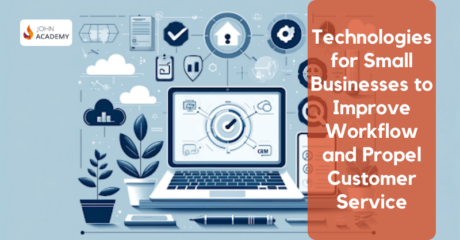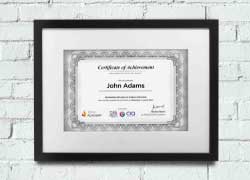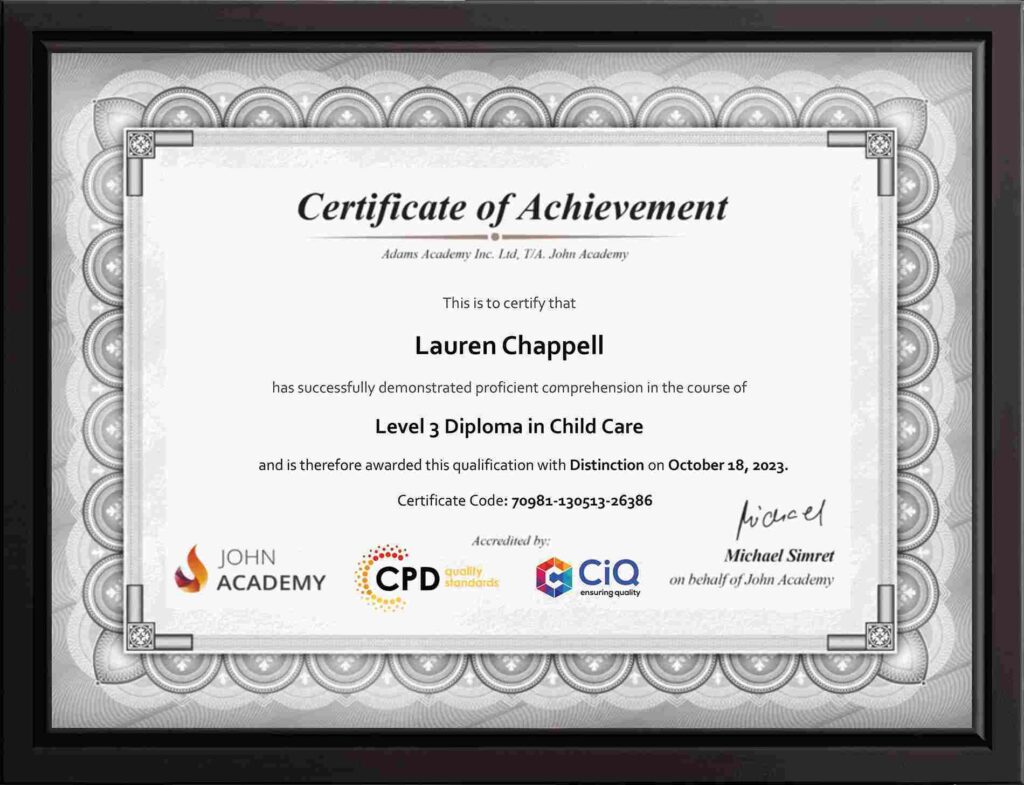

Are you looking for real change? Are your career aspirations stuck in a rut, and nothing seems to help them develop no matter what you do? Well, don’t worry. This comprehensive career development guide will show you how to take control of your future and make those changes last.
However, you must understand that with the ever-changing landscape of the modern job market, it can take time to achieve your goals. That’s why you need to take advantage of these career development opportunities to make your mark in the professional world.
So, whether you’re just starting out or already have years of experience under your belt, this guide has something for everyone. Read on to learn more about our insider tips and tricks that will get you on track.
What Is Career Development?
Career development is creating long-term goals and planning how to achieve them. It involves assessing your strengths and weaknesses, exploring opportunities, making decisions about education and training, setting career objectives, and taking action. Career development also includes engaging the services of a reliable network in your location, such as Working Voices, that can provide access to resources, advice, and support to help you reach your desired outcome.
It aims to improve job satisfaction, personal growth, financial security, and overall quality of life. To do this successfully requires effort on both sides—the individual looking for change must be willing to take the initiative. At the same time, employers should provide resources such as mentorship programs or professional organizations that can offer guidance along the way.
Furthermore, it’s important to remember that career development isn’t just about getting a better job; it’s about creating meaningful changes in one’s life that will bring greater happiness and fulfillment over time. Taking charge of your journey toward success takes courage, but when done right can lead to lasting rewards that are well worth the effort.
Tips For Successful Career Growth
Career development is the primary goal of any employee and an essential part of any organization’s success. That said, here are several tips to help you develop professionally and make the most of your potential:
1. Recognize Your Abilities
The key to successful career development is recognizing and embracing your abilities. No two people have the same skill set, so it’s important to identify yours and use them to your advantage. The first step is understanding what you are naturally good at. Think about past challenges or projects you’ve taken on where you excelled, as well as any awards or recognition you received for your hard work. Once you become aware of these natural abilities, take a moment to celebrate yourself.
Once you’ve identified your strengths, leveraging them into meaningful career growth opportunities is the next step. This could include taking courses or workshops related to your skillset, or networking with other professionals in similar fields who can provide valuable advice. It also helps to keep an eye out for job postings that use those talents. Being proactive when applying for positions demonstrates confidence in one’s capabilities and will likely make a positive impression during interviews.
Finally, remember that self-care is integral in managing stress associated with change and staying motivated over time. Make sure to carve out some ‘me’ time each day to relax and recharge without worrying about tasks looming overhead. Taking care of yourself mentally and physically will ensure you’re always ready for whatever life throws at you.
2. Determine Potential Growth And Development Areas
Now, it’s time to identify areas for growth and development. These skills or qualities will help you reach a higher level of success in your career. The first step is to be honest with yourself about where you need improvement. You may find this difficult, but it’s necessary if you want to make a real change.
The next step is to create an action plan for developing these skills or qualities. This could include further education, attending professional development courses, and taking advantage of any training opportunities at work. It’s also important to seek new experiences to gain knowledge and build confidence in different domains.
In addition, once you’ve identified which areas need improvement, set short-term and long-term goals for yourself. Aiming high will motivate you to keep pushing forward toward achieving your career aspirations. Keep track of your progress by regularly reviewing what has been accomplished and remember to celebrate successes along the way.
3. Assess Your Current Career Accomplishments
Before moving forward, you must step back and assess what has worked for you and any areas where improvement is required.
Start by making a list of accomplishments in each job role. Include things like promotions, awards won, successful project outcomes, and anything else that stands out. This will give you an idea of where your strengths lie and how they could be used going forward. You should also note any skills or knowledge gaps that may have impacted earlier roles. It’s always possible to acquire new abilities. Many employers offer flexible training solutions to help bridge these gaps without disrupting your current work schedule.
Once you’ve identified vital successes and weaknesses, it’s time to think about future goals. What do you want to achieve professionally? Are there particular sectors or roles that interest you more than others? Do your plans align with company objectives? Considering these questions will help ensure that decisions are driven by ambition rather than impulsivity.
4. Evaluate Your Motivating Factors
Now that you have evaluated your career, it’s time to identify and prioritize the motivators that will propel you toward achieving your goals. Motivating factors are internal or external influences that give you a reason to change your life. They can be anything from wanting to make more money to desiring recognition for work well done to having an opportunity to learn something new.
The best way to determine what motivates you is through self-reflection. Take some time to ask yourself questions such as: What do you enjoy doing? What challenges you and pushes you out of your comfort zone? What makes you feel most accomplished? Once you have identified these motivating factors, rank them according to their importance and significance in helping you reach your goals.
Knowing what drives and inspires you gives clarity on the direction you need to take when making decisions about your career development plan. With this newfound knowledge, create actionable steps that align with each one of your motivators, whether it’s taking classes online, or even volunteering at events related to your industry, all of which will help you move closer to reaching those goals.
5. Look Into Your Career Choices
It’s important to take the time to research your career choices before making any decisions. This will help you make sure that you choose a path that’s right for you and your goals. Here are five steps to get started:
- List Potential Careers: Consider what industries excite you, what kind of work environment would suit you best, and which job roles your skillset could use.
- Research Salary Ranges: Understand how much money each role pays so you can ensure it aligns with your desired income level.
- Look into Educational Requirements: Different careers have different education requirements or certifications needed to land a job. Find out if these qualifications are necessary and if there’s an opportunity to gain them online or through part-time study.
- Connect with Industry Professionals: Reach out to people currently working in the field via social media platforms, attend networking events, and ask questions about the day-to-day reality of their role and responsibilities.
- Evaluate Current Opportunities: Look at job postings related to your chosen field and consider what type of experience employers are looking for when hiring new staff.
With all this research done, you should be confident in taking the next step toward achieving your career goals.
6. Acquire New Skills
In today’s job market, it’s essential to have the right skills and qualifications to succeed. You must constantly update your knowledge and abilities with new skills or formal qualifications to stay ahead of the competition.
The first step towards career development is identifying areas where you need improvement. It can help to talk to colleagues and employers about what they’re looking for when hiring someone with that particular skill set. You may also want to research online, plenty of resources are available on topics such as coding, data analytics, digital marketing, or specific industry-related issues.
Once you’ve identified your weak spots, it’s time to start acquiring those skills. There are many ways to go about this, such as attending courses, taking online classes, reading books, watching tutorials, seeking out mentorships, or whatever works best for you. Moreover, consider enrolling in a degree program if the topic requires more advanced study. Investing in yourself now will pay off later when applying for jobs or promotions. For convenient and flexible learning options, you might also explore online courses by Distance Learning Centre, which offer a wide range of subjects to help you strengthen your skills from the comfort of your own home.
7. Emphasize And Use Your Transferable Skills
It’s no secret that the job market has changed significantly over the past few years, and staying competitive in this ever-evolving landscape can be challenging. One way to stand out is by leveraging your transferable skills, those abilities or experiences applicable across industries and jobs. These skills can help you land a new position or advance your current one.
Start by taking an inventory of all of your experience, both professional and personal. This includes education, hobbies, volunteer work, internships, travel, etc. Anything that shows how you’ve grown and developed certain competencies could be valuable when looking for a new job. Once you’ve identified these transferable skills, highlight them on your resume and during interviews so employers know why you would make a great addition to their team.
Think about what added value you bring with each skill set and showcase your knowledge in action. For instance, if you have strong organizational skills from managing multiple projects at once at a previous job, explain how you were able to streamline processes to save time and money for the company. Remember that demonstrating tangible results will show what type of worker and leader you are.
8. Seek The Guidance Of A Mentor
Having a mentor can be incredibly beneficial for career development. Mentors are experienced professionals who have the knowledge and experience to provide you with guidance, advice, and insight into your chosen profession. They can help you develop valuable skills, identify potential growth opportunities, and get more out of your career than you ever thought possible.
When looking for a mentor, finding someone whose values align with yours is crucial. You want to avoid finding yourself in a situation where they push you too hard or hold you back from reaching your goals. They must also understand what stage of life and career you’re at so that their advice is tailored specifically to your needs. If you already know someone who fits these criteria, then great. But if not, plenty of online platforms connect mentors and mentees, as well as professional organizations that offer one-on-one mentorship programs.
So, no matter how you find them, keep in mind that having an experienced mentor is invaluable when achieving success in any field. Working with someone who has been through similar experiences can open doors to new possibilities while helping build confidence in yourself and knowledge of the industry.
- Build A Solid Network
Building a solid network is crucial for career development. It gives you access to new opportunities, resources, and connections that can help advance your career. To build an influential network, start by identifying people who have similar interests or goals as yours. Once you’ve identified potential contacts, don’t hesitate to reach out. Be sure to introduce yourself and explain how you could benefit from connecting with them.
It’s also important to nurture existing relationships within your current network. This may include former colleagues, professors, family members, and friends. Show appreciation for their support and keep up-to-date on each other’s progress so they feel valued and included in your journey toward professional growth.
Lastly, stay active in local and online communities related to your field of expertise. This will allow you to gain valuable insight into what’s happening in the industry while keeping up with trends and technological advancements.
Conclusion
Career development is integral to professional growth and can be achieved by anyone. With the right mindset, determination, and effort, you can use the tips mentioned above to advance successfully in your chosen field or explore a new one.
It’s essential to identify areas for growth and capitalize on your strengths while learning the necessary skills to keep up with the ever-evolving job markets. Working with mentors and growing networks are great ways to embrace change as you move on in reaching your career growth.
If you take actionable steps toward your goals, you’ll be well-prepared for any opportunities that come your way. Remember that success requires dedication, and it’s worth it when you see yourself making tangible progress regarding your career aspirations.









